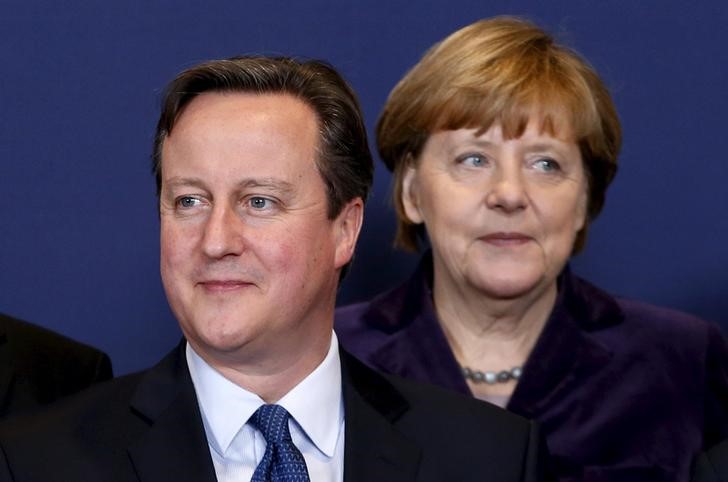BERLIN (Reuters) - Germany is preparing for increased market volatility if Britain votes to leave the European Union next week, a senior finance ministry official said on Tuesday.
If that happened it would also be critical for Germany and other EU countries to demonstrate their determination to continue as a bloc, Jens Spahn, parliamentary state secretary in the ministry, told German broadcaster ARD.
Financial markets were already anxious about the possibility of Brexit, but the reaction to a "Leave" vote in the referendum on June 23 could trigger far greater volatility.
"It will be important to demonstrate stability," Spahn said, adding that a British exit would be a huge loss.
He said the ministry was preparing responses to several scenarios and differing market reactions, but declined to give details.
A finance ministry spokeswoman also declined to elaborate.
A British exit would be a huge loss, Spahn said, and would mean Britain would have to renegotiate trade agreements with the rest of Europe, probably on less favourable terms.
"It has to make a difference if you're part of the family or just a neighbour," Spahn told ARD.
Spahn said the bloc needed to reassess its overall status regardless of how the vote turned out, given the depth of the problems it was facing.
But the need to cooperate on issues such as terrorism and the migrant crisis demonstrated the benefits of acting as a larger European community, he said.
Joerg Rocholl, president of the ESMT Berlin business school and a member of the finance ministry's academic advisory board, said Britain's departure from the EU would also raise serious questions about London's role as the financial capital of Europe.
European markets could drop dramatically if Britain left, he said, with only the European Central Bank and national central banks in a position to offset the losses through massive intervention and asset purchases, Rocholl said.
